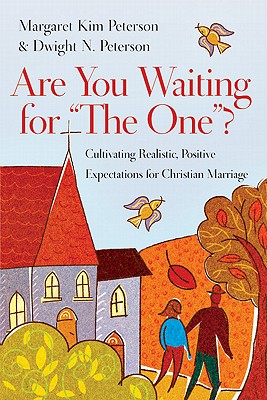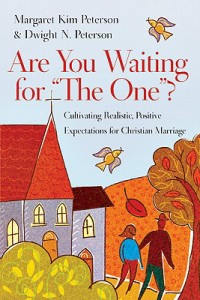Last month, I stumbled upon a blog by a guy named Chris Schumerth. From it, I found a column he wrote for a newspaper, about his brother Shane.
On March 6, 2012, the principal at the Jacksonville school where Shane taught Spanish fired him. Shane left the grounds, but returned with a gun and fatally shot the principal and himself.
“Given the tragic events at Episcopal School of Jacksonville on March 6, it is certainly fair for the impacted communities to have questions about who Shane Schumerth was and why he would do what he did,” Chris wrote. ” … But like so many questions, perhaps the first step to answering who Shane was is to pose another question: Which Shane Schumerth are we talking about?”
Chris went on to tell Shane’s story–a truer story than the one our culture might have told about him otherwise.
What Chris wrote really moved me, and I invited him to write with me about why true stories like his brother’s are important. He agreed:
Arleen: Last month, I watched a video of James Holmes in a jailhouse jumpsuit in a courtroom, accused of killing 12 and injuring 58 others in the movie theater shooting in Colorado. After I watched it, I overheard somebody else who saw it share his opinion of Holmes: “What a piece of trash.”
A couple years ago, in the middle of the night, I watched Tampa cops corral the crowd that surrounded a man named Dontae Morris. Morris was in cuffs, arrested for fatally shooting two police officers. A cop led him through the crowd, from the police station to a squad car on live TV. The crowd erupted. People yelled obscenities. Shouted “dead man walking.” Spat at him.
The affected (directly and indirectly) respond. There is anger and grief. There are calls for justice (if not retribution). In it all, there is commentary. The community calls it as it sees it: “The perpetrator deserves the needle. Is scum. Evil. A monster. A loser. A street rat. A piece of trash.”
But in the wake of a tragedy, one truth unchanged by it is forgotten: The perpetrator is a person.
Chris: First of all, I should say that in the aftermath of my brother’s death, my family’s experiences with Episcopal High School in Jacksonville have been positive ones. They have honored Shane’s humanity and respected that we, too, were experiencing loss. But that does not in any way diminish what you say; the kind of discourse you mention is very common and real.
You hint–correctly, I think–that the anger serves as a way for people to cover up their pain or vulnerability. We certainly can understand those feelings after something like Aurora. People have lost someone they care about (or at least are reminded of a time when they did) and they feel more scared about the world they live in, so they lash out. Our cries for retribution are often just that: a way for us to not have to feel our own weakness or tenderness. It’s easier to hate than it is to say “You hurt me,” isn’t it? I have certainly been guilty of this myself at various points in my life, more often than I’d like to admit.
To offer up another situation for comparison, think about the sex scandal at Penn State. It is certainly right to advocate for victims and to seek some sort of justice for those who either acted violently or inappropriately with children, or knew it was happening. But too much of the discourse–both publicly and privately–is so much more than that. It’s dehumanizing. We forget that even criminals have fears, insecurities, questions, dreams, and perhaps what we might be able to connect with the most, pain. People don’t just wake up one day and decide to kill someone. There is a whole series of complexities that lead a person there. This does not in any way “excuse” a crime like murder or rape or terrorism, but I think there is a certain way we can talk about people that honors their dignity. And I also think there is a drastic difference between disciplining or convicting from a position of love–which is possible but difficult, for sure–and doing those things from hate, which is what usually happens.
Sometimes it doesn’t even take death or tragedy for us to resort to this kind of oral or written dehumanization; it may just be that a person is on the other side of the political spectrum. Listen to certain Democrats talk about Rush Limbaugh or Republicans about President Obama, and too often you will hear language that suggests there are no redemptive qualities whatsoever about the person in question. If policy disagreements are enough for us to completely dismiss other people, you can imagine that we only escalate when a tragedy occurs.
Arleen: Sincerely. And I think it’s counter-intuitive in our culture to imagine after a tragedy that the person responsible for it had a childhood, hobbies, a personality, a sense of humor, a family that loves him or her no matter what. It’s counter-cultural to admit that he or she has dignity, let alone to talk about him or her in a way that honors it.
Instead, we rob them of their humanity, and of their intrinsic value. We reduce them to trash or we spit on them (often even we who aim to model our lives after Christ’s, who would never do that). We are afraid, really, to relate to them (and when we deny their humanity, disregard their value and distort the truth about them, we don’t have to admit that we can.).
But if we don’t let ourselves relate, how can we forgive? How can we reconcile? How can we love? To which (my gut says) the world would respond with this: Why should we?
Maybe we should love because love is what we’re made for. Or because a crime does not erase the humanity or dignity of the person who commits it. Or because in acknowledging that people who commit crimes can be loved (and by loving them), we model the kind of love the world desperately needs.
Chris: It’s interesting that you mention Christ, who was betrayed, spit on, whipped, and crucified. Real love and forgiveness certainly are counter-intuitive in our own culture, but these things are more perennial than we’d like them to be. The human condition is, indeed, very fallen. Still, it’s sad, and we all feel the effects in our broken relationships.
We particularly feel the effects when we are the ones dehumanized or dismissed–some people unfortunately spend their entire lives there–but I think we also lose when we do the dismissing. I recently read a book called The Wisdom of Stability by Jonathan Wilson-Hargrove, and I was struck by his referring to people as “gifts.” I grew up in the church, and yet, why hadn’t I been taught that, or better yet, why hadn’t it been instilled in me? That I am a gift, and so, too, are the people in my life around me. Too often we treat each other as burdens, and that message gets ingrained into our psyche. If Shane had believed and known with his whole being what a gift he was, he wouldn’t have done what he did. It is certainly not all my responsibility, but in some ways Shane’s final act was as much my failure as his own.
Yes, we are flawed, blatantly so. We will make mistakes, hurt each other. And if we’re going to talk about love and respect and dignity and forgiveness, let’s not be naive. It takes a ton of work to forgive. You don’t just take two warring sides the day after a huge battle and have them hug and sing Kumbaya together. Not to mention, it takes two willing sides to reconcile, and it’s usually hard enough to find one. A willing individual or family or community or nation is ready to put in the intentional time and effort and heartache to work things out together. That’s a lot different from what we usually see, which is that we put all the onus on one particular side to change, and when they’re willing, then we can move forward.
Meanwhile, we avoid, or we fight, and we part ways, because frankly, it’s easier to live that way. And yet, I trust that there is in fact a better way. I, for one, cannot afford to move forward with my own life without having been changed by the loss of my own brother.
– – – –
Click here to read what Chris wrote about Shane in the Florida Times-Union.
Click here to follow Chris’s blog.


